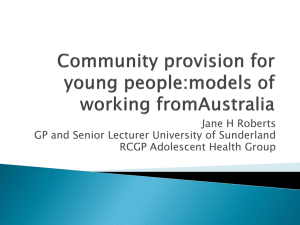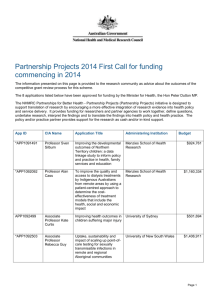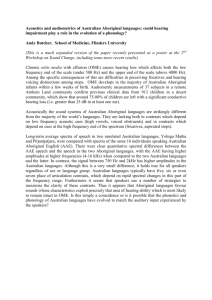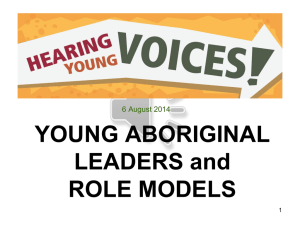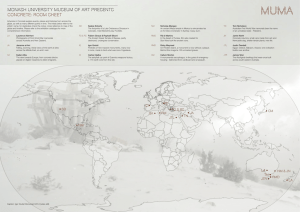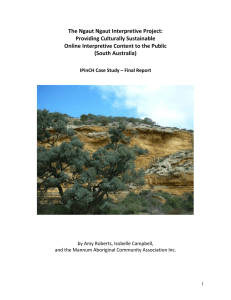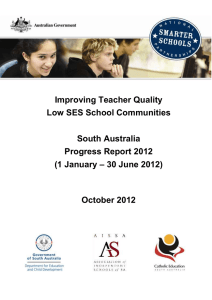File
advertisement
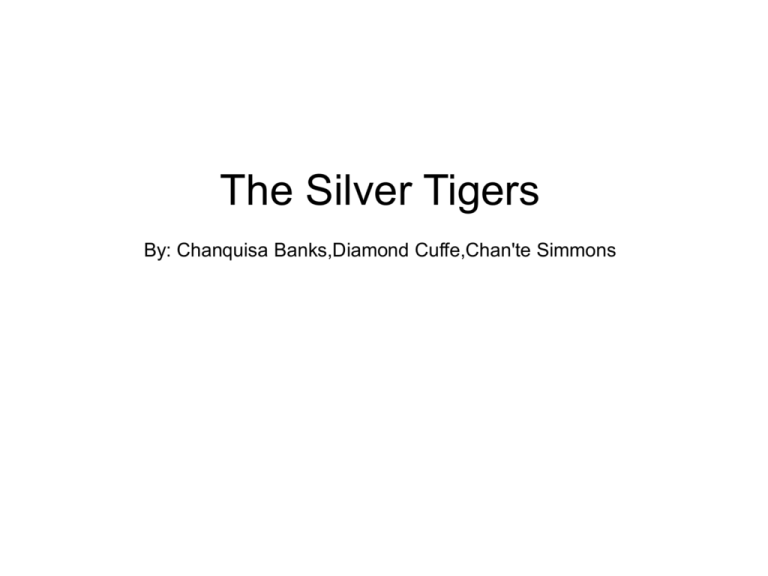
The Silver Tigers By: Chanquisa Banks,Diamond Cuffe,Chan'te Simmons The Sea God •Sea God: Is the archetype covering the domain of emotion and instinct. •Hawaiian culture is an adaption of the Polynesians migrating. Coming from various islands throughout Oceania makes Hawaiian mythology rich and complex. The Volcano The Volcano: Is described as giants living or imprisoned deep within a mountain. On the Island of Hawaii it is said that just before an eruption is about to occur that the volcano goddess Pele stamps her feet in Kilauea. One of the ancient legends has it that an old woman is seen just before an eruption. Hence the saying, “ never abuse an old woman...she might be Pele. The Sea Monster A bellowing water monster from Aboriginal legend, believed to bring diseases. It lives at the bottom of the water holes, swamps, lakes and rivers of the Australian outback. The creature is roughly the size of a calf and requires calm water to live in. Unless its food sources are interfered with, the Bunyip usually leaves human beings alone. However, if necessary it has the strength to pull a person down into the water and drown him. The name comes from an Aboriginal word meaning "devil" or "spirit". The Sea Monster: The oldest myth for good and evil. The Mermaid A female divinity of creation in the religion of the Australian Karadjeri. She created all things and all creatures. The Mermaid: Mermaids have captured the hearts and imaginations of men and women the world over. This archetype is spontaneously in every single culture in the world. The Earth Mother . This archetype touch the collective consciousness and in the temple days the ladies are actually not virgin but they consider themselves as virgin because nobody can control them, they are in control. The Australian natives call her, Mother Eingana, the world-creator, the birth mother, maker of all water, land, animals, and kangaroos. This huge snake goddess still lives, they say, in the Dreamtime, rising up occasionally to create yet more life The Navigator The divine trinity of north Australian mythology, Djanggawuls was made up of two sisters and a brother who came to Earth via Beralku, the island of the dead, and gave the landscape its shape and vegetation. The Navigator: To delight in. The Witch Doctor \ The Wurrando is a witch doctor in Australia a culture hero with many folklore tales of his wanderings. The Witch Doctor: A magician credited with powers of healing, divination, and protection against the magic of others. The Journey The Djunkgao sisters named on their travels the clan countries and animals, and made totem wells with their yam sticks. They lost their totems to the men and became ordinary women when the younger sister was incestuously raped. The sisters are associated with the rainy season floods and the movements of the ocean. The Journey: An Hero who travels place to place to experience new things. The Dream Hut It is the remote period in time in which the ancestral spirits of aboriginal tribes walked the earth. These ancestors are believed to have returned to their abode underground. The Dream Hut:: Ankojaria the Dreaming hero who first emerged from the ground to create the world. His myth belonged to a small band of Aranda men, known as the Ngala-Mbitjana people. They were heirs to Ankotarinja's exploits at the time of the Dreaming, performing his ceremonies and initiating their young Iliara into his totemic lodge. The Musician Banajatia an Aboriginal creator deity god in Australia. The Musician: The feeling of o mercy it helps you relief stress and pain. If music be the food of love, play on. The Star-Gazer The legend goes that Gnowee once lived on the earth at a time when the sky was always dark and people walked around carrying torches in order to see. One day while Gnowee was out gathering yams, her baby son wandered off. She set out to search for him, carrying a huge torch, but never found him. To this day she still climbs the sky daily, carrying her torch, trying to find her son. The Star-Grazer: Someone indifferent to the busy world. The Animal One of the ancestral snakes of the Binbinga people of northern Australia, Bobbi-Bobbi once sent a number of flying foxes for men to eat, but these bats escaped. So the snake, underground, watching, threw one of his ribs up, where the men on the ground received it and, using it as a boomerang, slew the bats and cooked them. Later they used the boomerang to make a hole in the sky, and Bobbi-Bobbi, angered, took back his rib, dragging down into his mouth two young men who had tried to hold onto the boomerang. The Animal: a primitive generalized plan of structure deduced from the characters of a natural group Death The name of the songs sung by the Buin people (Australia) as laments for the dead. The words are the mourning exclamations and cries of the relatives of the deceased at the time of cremation. Death: birth, death, separation from parents, initiation, marriage, the union of opposites The Daugther Djanggawul sisters/daughters of the sun, these Australian goddesses unceasingly brought forth living creatures from their endlessly pregnant bodies. Their long vulvas broke off piece by piece with these births, producing the world's first sacred artifacts. Daughter: Perfectly. Imperfect. Meets needs, doesn't fix everything and trys to teach her to not make the same mistakes. The Son Ngariman and his relatives killed the two brothers with spears, but the enraged Dilga, their mother, and the earth goddess, caused her milk to flow underground to the place of the murder, where it revived the victims and drowned the killers. Bagadjimbiri were reborn, but after some time decided to pass away, their bodies turning into water snakes and their spirits rising into the sky as great clouds The Son: Is usually the first of the boyhood archetypes to develop. Citation http://www.pantheon.org/areas/mythology/oceania/aboriginal/articles.html http://www.google.com/search?q=images&rls=com.microsoft:en-us&oe=UT
